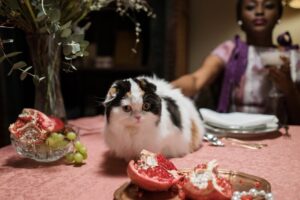What Are The Best Diets For Cats?

Do you know if your cat is eating properly? Are you wondering what your cat should be eating? Do you know what you should feed your cat? We looked at the foods that can provide cat nutrition in this article. An appropriate diet for the cat depends on its age, physical condition, and amount of energy it needs to perform activities. Find out if you should change the diet of your cat by reading on.
Contents
Is there a type of cat food to choose from?
Cats can be fed in three different ways: wet food, dry food, and homemade food. In order to ensure proper nutrition, it’s best if we provide both wet and dry food; you can alternate the two.
It is important that they are of high quality. Remember to read the label before purchasing the product; make sure animal protein is the main ingredient.
Compared to commercial food, homemade food has many benefits, but the most important is that we can control the quality and ensure the cat is receiving the correct nutrients. If you decide to make homemade food for your cat, speak to your veterinarian so they can assess the cat’s needs and advise you what diet is appropriate for your cat.
How much nutrition does a cat need?
You know what food you can offer your cat, so let’s learn about their nutritional needs to ensure they get the right diet. Carnivorous cats need high amounts of protein, along with taurine, arginine, and arachidonic acid. Of all the nutrients necessary to cats, vitamin A is by far the most important. Here are the seven essential nutrients cats need:
Protein
For dry feed, this is the most important nutrient; it should contain at least 25 percent protein, but ideally around 40 percent in natural feed. Protein levels should range from 90 to 95 percent; fruits and vegetables can make up the remaining 10 to 5 percent, but they are optional.
The essential amino acids
The two most essential amino acids for cats are arginine and taurine, which are both found in meat. A deficiency in either of them can be harmful to their health.
Fat
Fat derived from meat must make up at least nine percent of the calories of an adult cat. Especially in homemade diets, 15 to 20 percent fat should be included in their diets.
Fatty acids
Omega 3 and 6 are essential for cats’ cognitive, cardiovascular, and immune systems, as well as their skin and coat.
Carbohydrates
Cats are known to be able to survive on very low carbohydrate diets because they can cover their glucose needs by catabolism of proteins. Cornstarch is frequently used in commercial feeds since it is the most digestible. In the same vein, cereals should not be included in homemade diets since carbohydrates are not an essential nutrient.
Vitamins
Cats require vitamin c e and beta carotene for a wide range of vital functions. Vitamin c e kills free radicals that cause cell damage and promotes aging. Vitamin A is essential for their eyes, cell membranes, teeth, and bones.
Minerals
Calcium, phosphorus, magnesium, copper, manganese, iron, zinc, and selenium are essential minerals added to cats’ diets. As long as homemade diets are well formulated and balanced, foods should already provide needed vitamins and minerals.
How much energy do they need?
Depending on the cat and its characteristics, they may differ. With 60 calories per kilogram per day, a house cat with limited activity should be able to survive.
Cats that have been neutered, especially a senior or a cam, lose 45 calories per kilogram per day. Depending on how active the cat is, they may need 70 or 90 calories per kilogram per day. The youngest cats tend to use more energy, and their needs are higher than those of older cats, which should also be taken into account.
At the end of pregnancy, cats need approximately 100 kilocalories per kilogram of body weight each day. Additionally, they must consume more fat in order to accumulate reserves they will need in the last weeks of pregnancy since they will gain weight for the kittens. As a result, it’s a good idea to feed our cat a kitten-specific food during pregnancy and lactation, due to the high level of energy it provides. When cats age, it is common for them to suffer from diseases. In order to reduce their impact, it is important to offer them a diet that is rich in vitamins c and e.




